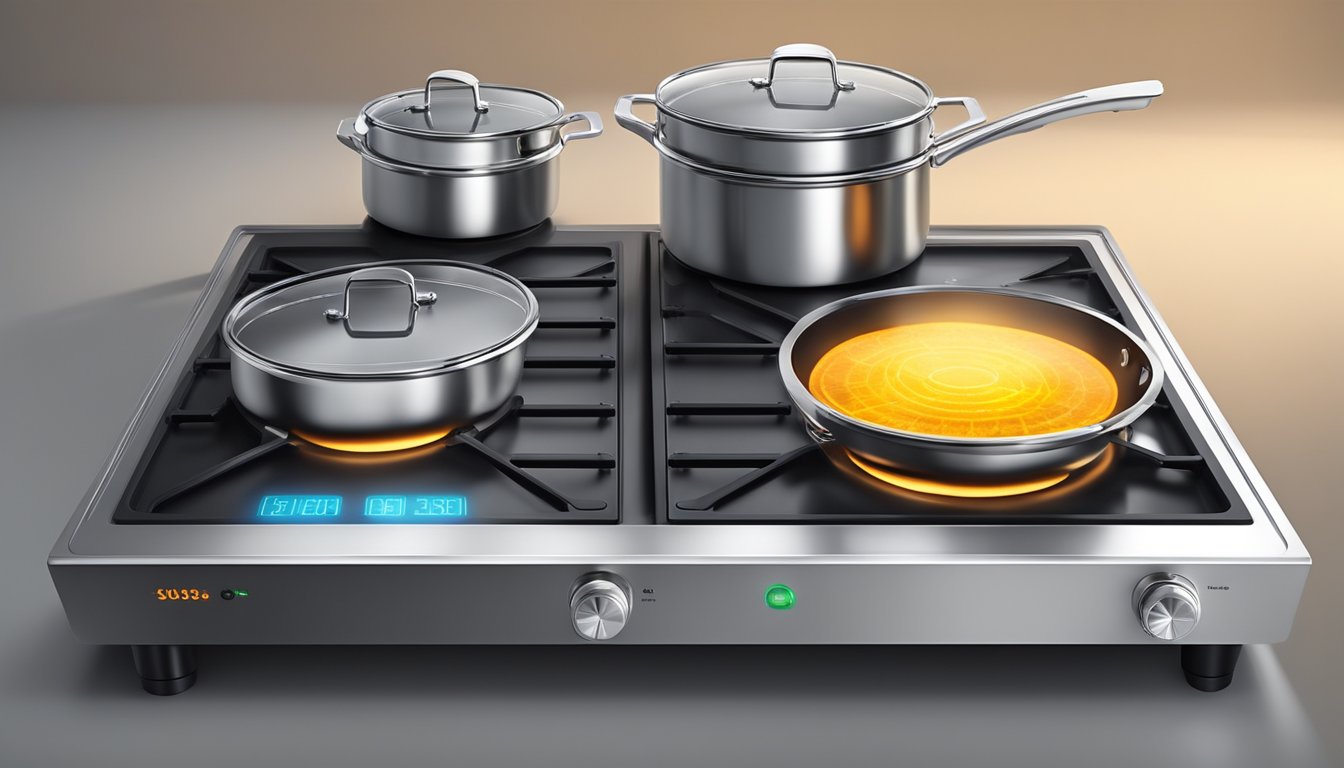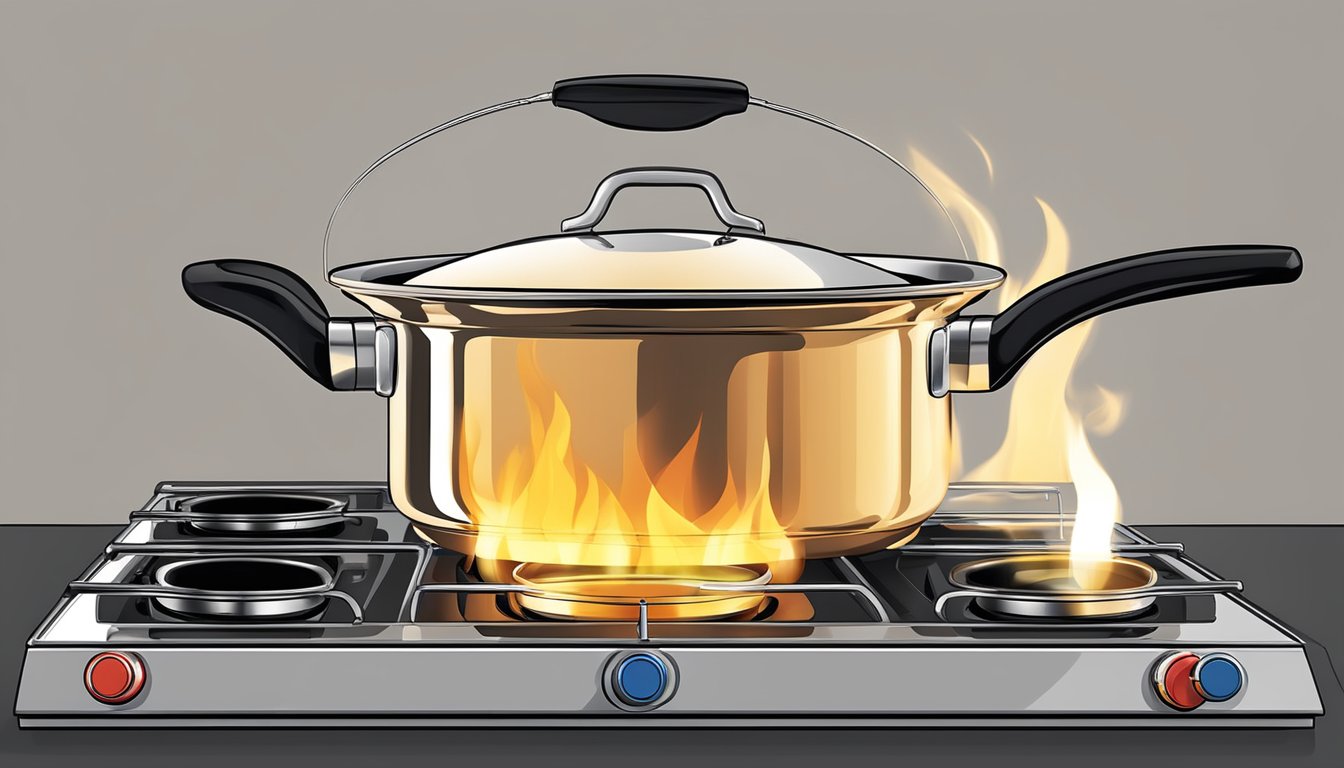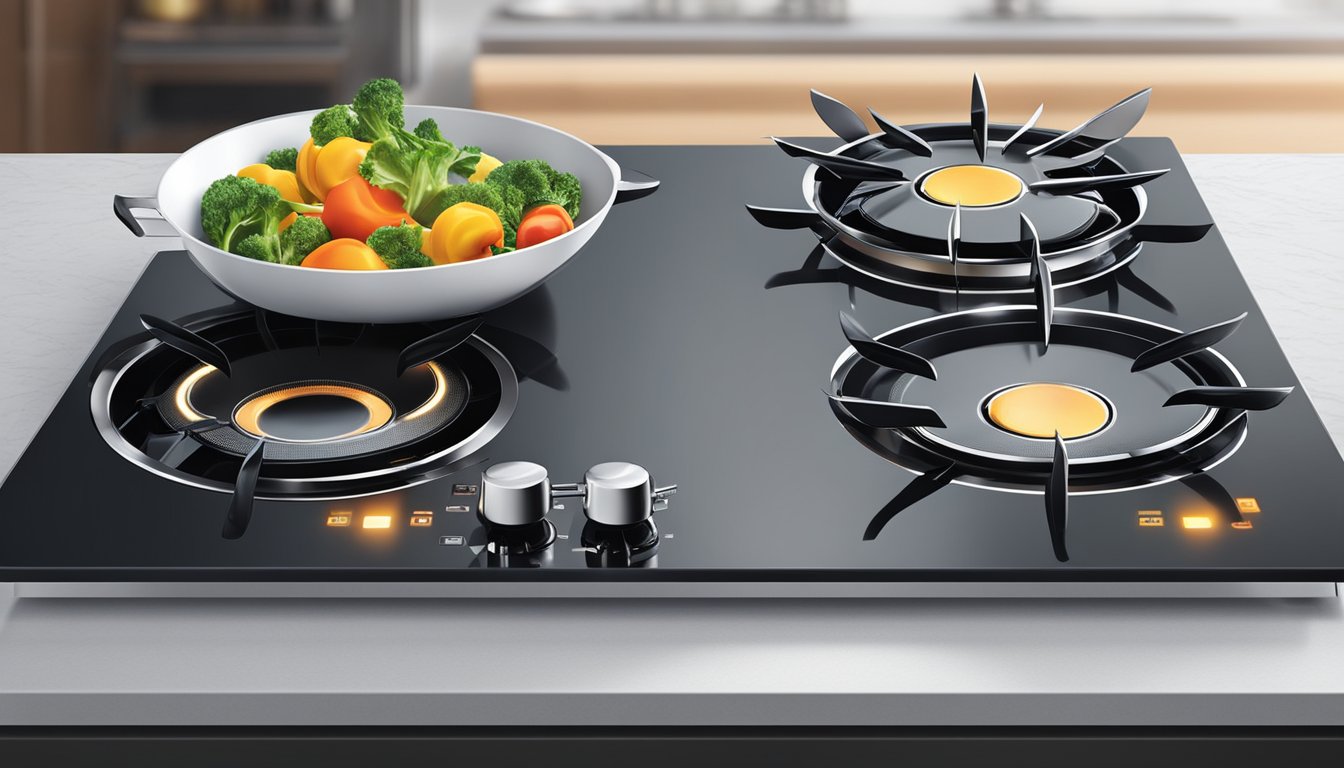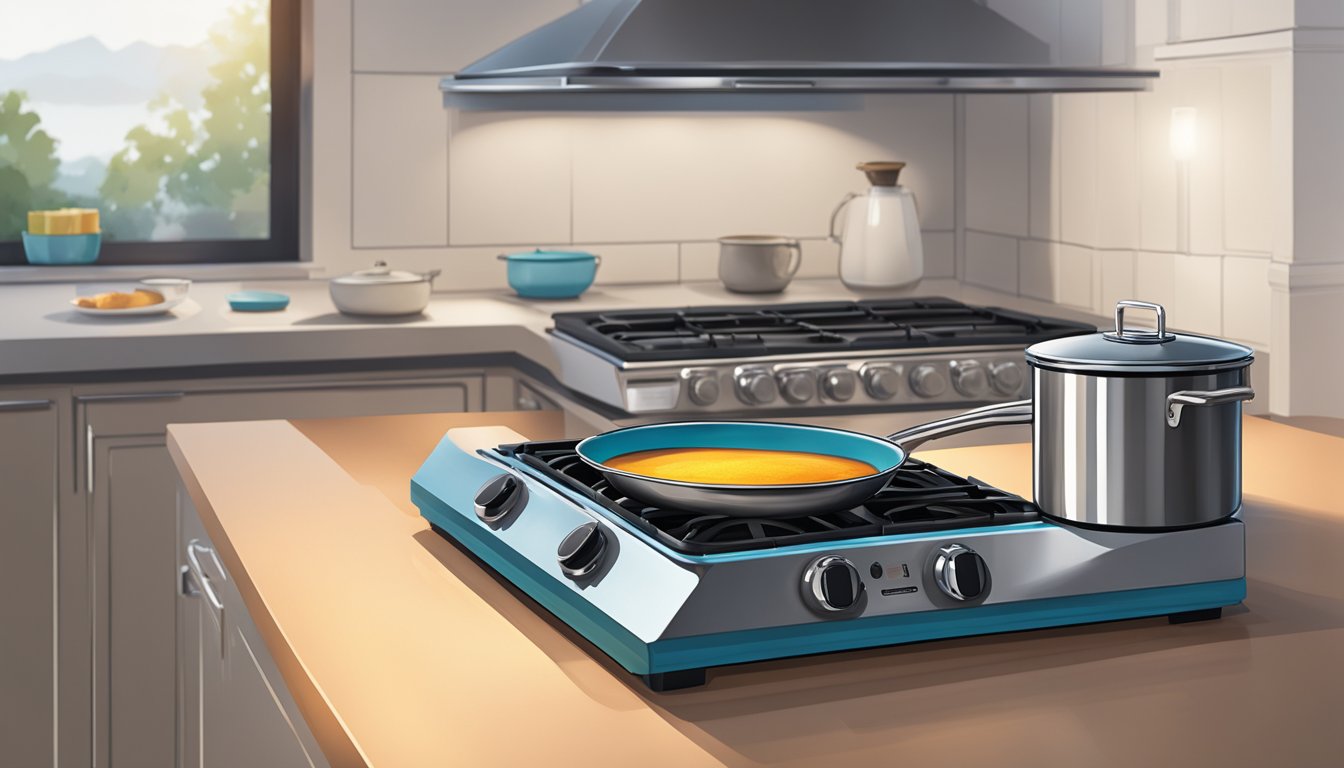Induction cooking has become increasingly popular in recent years, but is it really better than gas cooking? The answer is not straightforward, as both cooking technologies have their pros and cons. In this article, we will compare induction and gas cooking, and provide you with the information you need to make an informed decision.

When it comes to energy efficiency, induction cooking is the clear winner. Induction hobs use electromagnetic energy to heat the pan directly, which means that they are much more efficient than gas hobs. In fact, induction cooking is up to 90% efficient, while gas cooking is only around 40% efficient. This means that induction cooking can save you money on your energy bills in the long run.
However, when it comes to performance, gas cooking has some advantages. Gas hobs are more responsive than induction hobs, which means that they can heat up and cool down more quickly. This makes them ideal for tasks that require precise temperature control, such as cooking sauces and soups. Gas hobs also provide a visual indicator of the heat level, which can be helpful when you are cooking.
Comparing Cooking Technologies

When it comes to cooking, there are two main technologies to choose from - gas and induction. Both have their pros and cons, and it's important to understand the differences between them before making a decision. In this section, we'll compare the two technologies across a range of factors, from energy efficiency to cookware compatibility, to help you make an informed choice.
Energy Efficiency and Power Usage
Induction cooktops are more energy-efficient than gas cooktops. They use electromagnetic energy to heat the cookware directly, which means less heat is lost to the surrounding environment. In fact, induction cooking has won the Energy Star Emerging Technology Award for its energy efficiency. Gas cooktops, on the other hand, lose a lot of heat to the air around them, which can be wasteful.
Cost and Budget Considerations
Induction cooktops are generally more expensive than gas cooktops, but they can be more affordable in the long run due to their energy efficiency. Gas cooktops are less expensive to buy and install, but they can be more expensive to run over time due to the cost of gas.
Cooking Speed and Temperature Control
Induction cooktops heat up faster than gas cooktops, and they offer more precise temperature control. They also provide instant heat, which means you don't have to wait for the cooktop to warm up. Gas cooktops can take longer to heat up, and they can be more difficult to control at low temperatures.
Safety and Maintenance
Induction cooktops are generally considered safer than gas cooktops, as there's no risk of gas leaks or accidental burns. They're also easier to clean, as there are no grates or burners to remove. Gas cooktops require more maintenance, and there's always a risk of carbon monoxide poisoning if there's a gas leak.
Cookware Compatibility and Performance
Induction cooktops require induction-compatible cookware, which can be more expensive than regular cookware. However, induction-compatible cookware is often made of high-quality materials like stainless steel, which can improve cooking performance. Gas cooktops can use any type of cookware, but they can be less efficient with some types of pots and pans.
Aesthetic and Kitchen Design
Induction cooktops have a sleek, modern look that can complement a range of kitchen designs. Gas cooktops have a more traditional look, and they require a gas line to be installed in your kitchen.
Health and Environmental Considerations
Induction cooktops are more environmentally friendly than gas cooktops, as they produce less carbon monoxide and other harmful gases. They're also better for your health, as there's no risk of inhaling gas fumes.
Professional and Home Cooking
Induction cooktops are becoming increasingly popular in professional kitchens, as they offer fast, precise cooking. However, gas cooktops are still preferred by many professional chefs for their response and precision. At home, it really depends on your individual preferences and cooking habits.
Learning Curve and User Experience
Induction cooktops can have a bit of a learning curve, as they require induction-compatible cookware and can be more difficult to control at low temperatures. Gas cooktops are generally easier to use, but they can be more dangerous if you're not careful.
Durability and Lifespan
Induction cooktops are generally more durable than gas cooktops, as they have fewer moving parts and are less likely to break down. Gas cooktops can last a long time if they're well-maintained, but they can be more prone to wear and tear.
The Verdict: Induction vs Gas
Overall, both induction and gas cooktops have their pros and cons. Induction cooking is more energy-efficient, faster, and safer, but it can be more expensive and require special cookware. Gas cooking is less expensive upfront and can be easier to use, but it's less energy-efficient and can be more dangerous. Ultimately, the choice between induction and gas cooking depends on your individual preferences, cooking habits, and budget.
Understanding Induction Technology

Induction cooking is a modern cooking technology that has been gaining popularity due to its many advantages over traditional gas cooking. In this section, we will explore the science behind induction cooking, its health benefits, and the advantages and challenges of using this technology.
The Science Behind Induction
Induction cooking works on the principle of electromagnetism. A copper coil is placed under the cooking surface, and when an alternating current is passed through the coil, it creates a magnetic field. This magnetic field induces an electric current in the cookware placed on the surface, which generates thermal energy and heats the food.
Induction Cooking and Health
Induction cooking is safe for people with pacemakers as it does not emit electromagnetic radiation. Additionally, it does not produce carbon monoxide, which is a potential hazard of gas cooking. However, it is essential to use induction-compatible cookware to ensure that the magnetic properties of the cookware are compatible with the induction burner.
Selecting Induction-Compatible Cookware
Induction-compatible cookware is made of magnetic materials such as cast-iron, steel, and some stainless steels. Copper, aluminum, and glass are not compatible with induction cooking. When selecting cookware, look for the induction symbol or test the cookware's compatibility with a magnet.
Advantages of Induction Cooking
Induction cooking has several advantages over gas cooking. It is more energy-efficient, heats up faster, and provides precise temperature control. It is also safer as it does not produce an open flame. Induction cooking has won the Energy Star Emerging Technology Award for its energy efficiency.
Challenges and Considerations
One of the challenges of induction cooking is the learning curve associated with using this technology. Additionally, induction-compatible cookware can be more expensive than traditional cookware. However, the energy efficiency of induction cooking can offset the initial cost of the cookware.
Innovation and Future of Induction
Induction technology is continually evolving, and new innovations are emerging. For example, some induction cooktops can now recognize the size and shape of the cookware and adjust the heating accordingly. In the future, we can expect more advancements in induction technology that will make cooking even more efficient and convenient.
Overall, induction cooking is a superior cooking technology that offers many advantages over traditional gas cooking. If you are looking for a safe, energy-efficient, and precise cooking experience, induction cooking is the way to go. Visit Megafurniture.sg, a leading Singapore ecommerce furniture store, to find induction-compatible cookware and induction burners that fit your budget and style.
Frequently Asked Questions

Why might professional chefs favour gas over induction cooktops?
Professional chefs may prefer gas cooktops over induction ones because they offer more precise temperature control. Gas cooktops allow chefs to adjust the heat instantly, which is crucial when cooking delicate dishes that require precise temperature control. Additionally, gas cooktops offer an open flame, which can be used to char, sear or roast food, giving it a unique flavour.
What are the potential drawbacks of using an induction stove for cooking?
One potential drawback of using an induction stove is that it requires special cookware. Induction stoves work by creating an electromagnetic field, which requires cookware made from magnetic materials like cast iron or stainless steel. Another drawback is that induction stoves can be more expensive than gas stoves. However, induction stoves are more energy-efficient and can save you money on your energy bills in the long run.
How does the monthly cost compare between gas and induction stoves?
The monthly cost of using a gas stove is typically higher than that of using an induction stove. Gas stoves require a constant supply of gas, which can be expensive. Induction stoves, on the other hand, use electricity, which is generally cheaper. Additionally, induction stoves are more energy-efficient, which means they use less electricity to cook the same amount of food as a gas stove.
Should I consider transitioning from a gas to an induction cooktop?
If you're looking for a more energy-efficient way to cook, then transitioning from a gas to an induction cooktop is definitely worth considering. Induction cooktops are more energy-efficient than gas cooktops, which means you'll save money on your energy bills in the long run. Additionally, induction cooktops are safer to use, as they don't produce an open flame.
Can induction cooktops outperform electric ones in the kitchen?
Yes, induction cooktops can outperform electric ones in the kitchen. Induction cooktops heat up faster than electric ones, and they offer more precise temperature control. Additionally, induction cooktops are more energy-efficient than electric ones, which means they use less electricity to cook the same amount of food.
What are the advantages and disadvantages of induction versus gas cooktops?
Induction cooktops offer many advantages over gas cooktops. They heat up faster, offer more precise temperature control, and are more energy-efficient. Additionally, induction cooktops are safer to use, as they don't produce an open flame. However, induction cooktops require special cookware, and they can be more expensive than gas cooktops.
In summary, both induction and gas cooktops have their advantages and disadvantages. It ultimately comes down to personal preference and cooking style. However, if you're looking for a more energy-efficient and safer way to cook, then an induction cooktop is definitely worth considering. Check out Megafurniture.sg for a wide selection of induction cooktops and other kitchen appliances.








